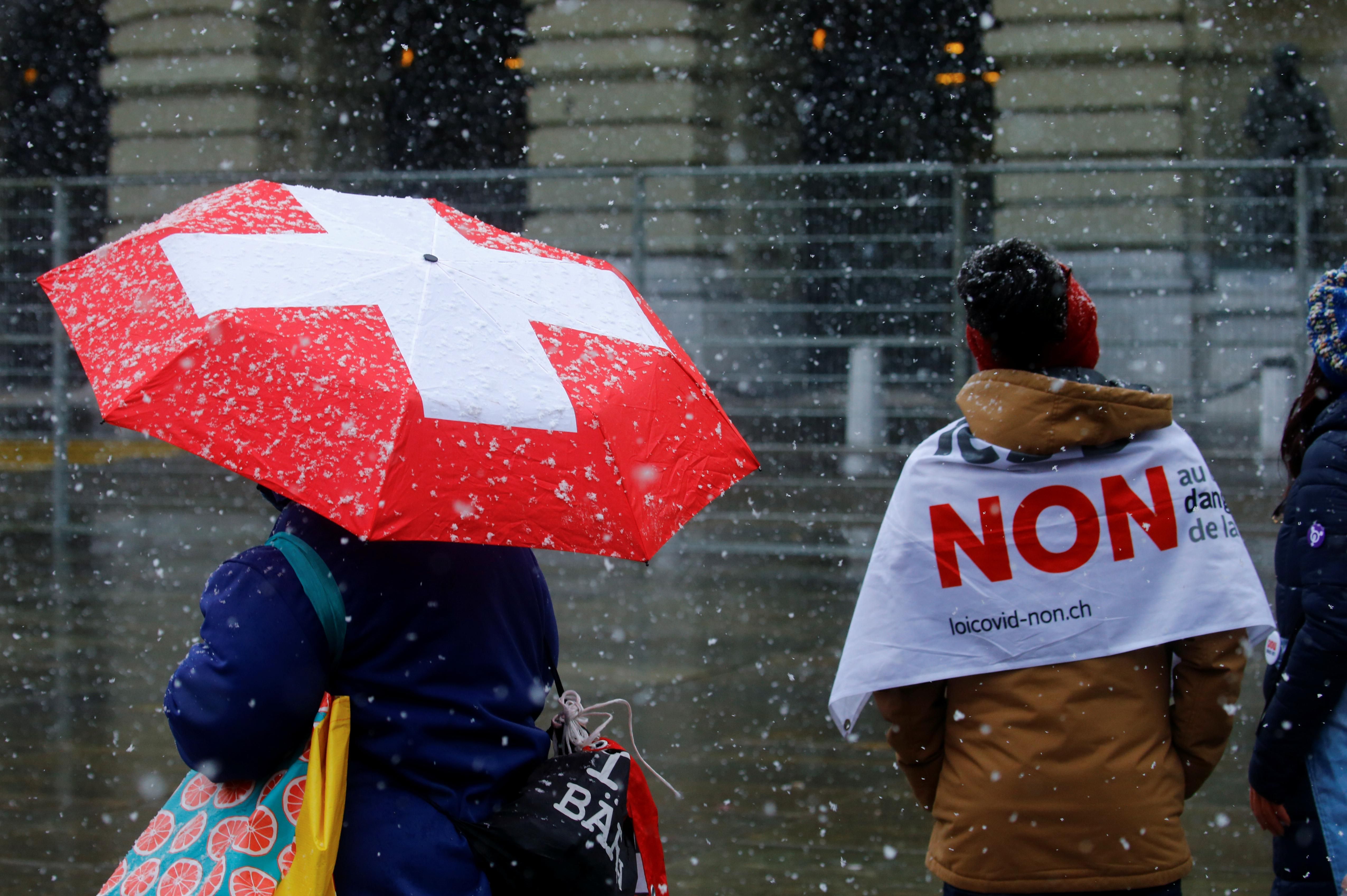Hard Numbers: Swiss endorse COVID certificate law, Japan ups defense budget, Canada's maple syrup emergency, New Zealand MP's no fuss delivery
63: Early results of a national referendum found that 63 percent of Swiss voters back legislation mandating residents show proof of vaccination, a negative test result, or recovery from COVID to enter public spaces. Amid a surge in COVID cases, the Swiss government has opted not to impose new restrictions as other European states have done.
6.75 billion: Japan will add a whopping $6.75 billion to its already record-high annual defense budget, a sign of Tokyo's fear of increasing security threats from China and North Korea. Japan's new Prime Minister Fumio Kishida has vowed to double Japan's defense expenditure to 2 percent of gross domestic product.
50 million: It's not just oil that's in short supply globally. Amid ongoing supply chain disruptions, the Canadian government will tap into its strategic reserve of maple syrup, releasing 50 million pounds of the liquid gold, half its national stockpile. Canada produces three quarters of the world's maple syrup, but output has slowed because of pandemic-related supply chain issues and a warmer than usual sugaring season.
2: Already experiencing contractions, New Zealand Member of Parliament Julie Anne Genter rode her bicycle to the hospital early Sunday morning, giving birth just one hour later. It's the second time the Greens MP, a dual Kiwi-US citizen, has ridden her bike to hospital during labour, doing the same thing with her first born in 2018.
